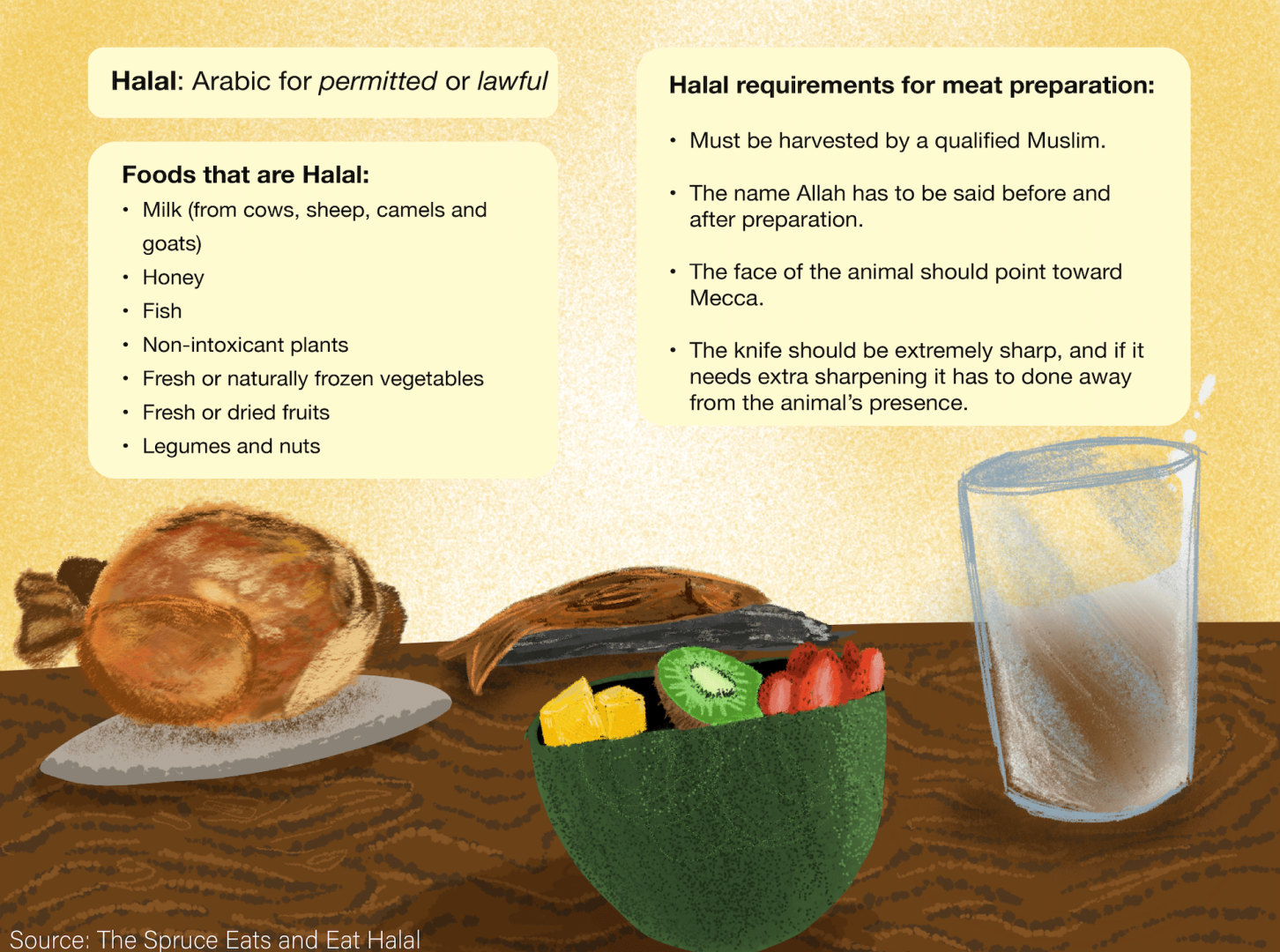In the Muslim faith, foods are considered Halal if they are prepared and processed in accordance to Islamic Law, according to the Halal Food Standards Alliance of America. This includes criteria during every step of the process of preparing food, from the butchering of animals to how they are transported and served. According to General Manager of UIndy Dining Amy Dugan, UIndy Dining seeks to accommodate whatever dietary restrictions are necessary for every student on campus. However, according to freshman psychology major Hiba Belkacemi, there is a lack of Halal options at UIndy.
“Other people are eating chicken and it makes me feel not included,” Belkacemi said.
Dugan said this was the first time she had heard of this being an issue at UIndy. However, she said she is excited to hear the issue being brought forward because it allows her to continue addressing every concern and restriction expressed to her about dining at UIndy.
“This is the first we’re hearing of it, but we’re really excited to hear that because, to us, it doesn’t sound like a problem, that sounds like something we can work through very easily,” Dugan said. “Our chef has done a lot of research and we have local vendors; we also have vendors in Chicago that can get to us very easily and we have Halal options that we could provide at-the-ready when we’re informed of the need for those.”
Executive Chef Trisha LeBlanc said she would like to sit down with students that are concerned with this in order to properly address their desires and needs.
“If we’re not aware of the situation, we can’t find a solution for it,” LeBlanc said.
According to Dugan, there are many different places for students to express concerns regarding the availability of religiously permissible foods. She recommends that students have a face-to-face conversation with her or other dining hall staff in order to properly address their concerns. She also said UIndy Dining’s website includes Dugan and LeBlanc’s email addresses that students can send concerns to. There are also comment boxes at every dining location across campus.
“We also have a Facebook page where we’re able to receive questions and we’re actively answering any messages that come across that way,” Dugan said.
Dugan said that while she thinks UIndy Dining covers its bases in terms of providing outlets for open communication between students with concerns and requests, she is open to having other forms of discussion as well.
“Whatever is best for each individual student… works well for us. That’s what we do,” Dugan said.
Dugan said that, as long as issues are brought to her and her staff, they will be able to work out a solution with the student.
“Each time they reach out to us, we are able to make accommodations every time. The chef or myself and our managers help these students directly,” Dugan said. “But the critical part is making us aware that there’s a need for it so we can address it accordingly.”
One of Belkacemi’s primary hopes is that every student on campus would feel included if UIndy would provide more Halal options.
“[Having Halal options] makes the school a more inclusive place and it makes the international students who are Muslim or other people who are Muslim feel more at home,” Belkacemi said.
Dugan said that part of her plan for moving forward and finding solutions for this is getting direct student feedback and learning as much as they can about the concerns of students and their dietary needs. She hopes to find student organizations or meetings that her or her staff could attend in order to hear directly from the students that are affected.
“We’re here for you,” Dugan said. “We would really love an opportunity to have that direct connection so that we can address it a lot more quickly.”







